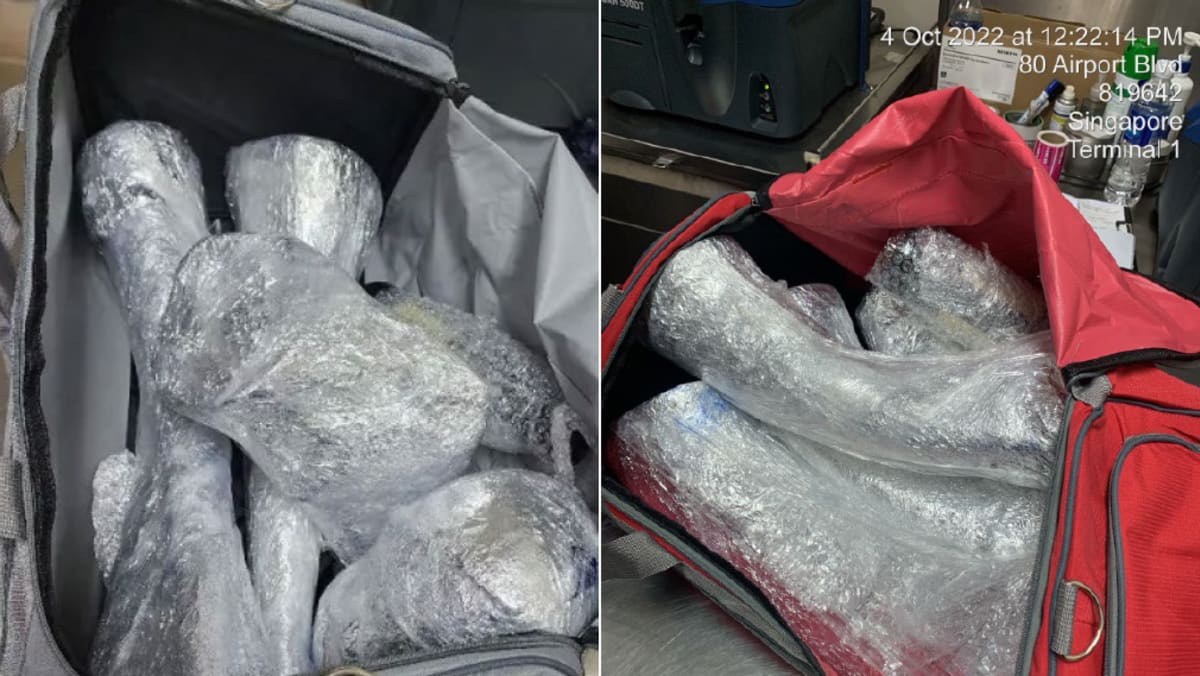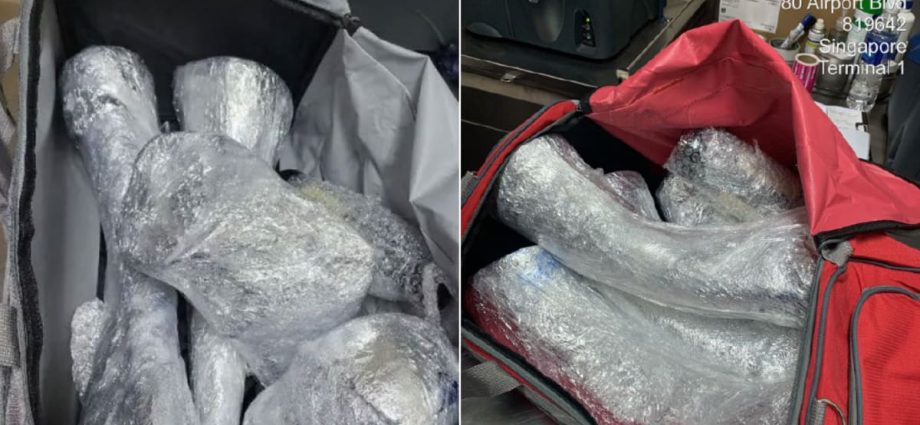
DNA analysis by NParks’ experts confirmed that all 20 horns were genuine, from white rhinos and black rhinos.
The two species come under Appendix I of the Convention on International Trade in Endangered Species of Wild Fauna and Flora (CITES), which lists the most endangered species.
International trade in those species is prohibited.
Samples of the horns were sent to the University of Pretoria in South Africa where expert DNA analysis determined that the horns came from 15 southern white rhinos and one black rhino.
Some samples were linked to 11 female rhinos, and the reproduction of such species could have been halted as a result of possible illegal poaching, court documents stated.
Investigations revealed that Jaycee had purchased the horns from illegal poachers in South Africa and arranged to sell them to a person known as “Jimmy” for delivery in Laos.
SINGAPORE’S LARGEST SEIZURE OF RHINO HORNS
Deputy public prosecutors Eric Hu, Ng Shao Yan and Lee Da Zhuan sought three years and one month’s jail for Gumede.
They noted that this is the largest seizure of rhino horns in Singapore to date, adding that illegal trade in wildlife species is one of the biggest threats to the survival of many endangered species.
“The more endangered a species, the more coveted it is by traders and collectors,” they said. “This leads to more illegal wildlife trading – which in turn results in a vicious cycle that could eventually result in a species’ extinction.”
The prosecution said that illegal wildlife trade, if left unchecked, will damage Singapore’s standing as a financial hub and preferred centre of commerce.
Singapore airports handle more than 30 million passengers annually, with the sheer volume of passenger traffic rendering Singapore vulnerable to exploitation as a conduit for animal smuggling, said the prosecutors.
“There is a need to prevent mislabels of Singapore being a transhipment hub for illegal wildlife,” they said.
“For the present case, the detection and seizure of the rhinoceros’ horns was only possible due to the vigilance of the officers at the checkpoints.”
The prosecution added that Gumede’s acts have “contributed to the further decimation of the rhinoceros population”.
There are currently fewer than 5,000 black rhinos in the wild, said the prosecutors, with the sharp decline largely due to poaching for rhino horns believed to be a cure-all for many ailments in traditional Chinese medicine.
In Vietnam, the rhinoceros horn is rumoured to cure cancer and is highly sought after by the more affluent community, said the prosecution.
Gumede has been remanded since October 2022.
He was previously acquitted of a third charge of entering into a criminal arrangement regarding the horns after the judge found that an element of the charge had not been made out by the prosecution.
Gumede, who is represented by Ms Stephania Wong from Rajah & Tann, is set to be sentenced on Jan 26.
For bringing in endangered species without the required permits, he could be jailed for up to two years per charge, fined up to S$50,000 per species, or both.

